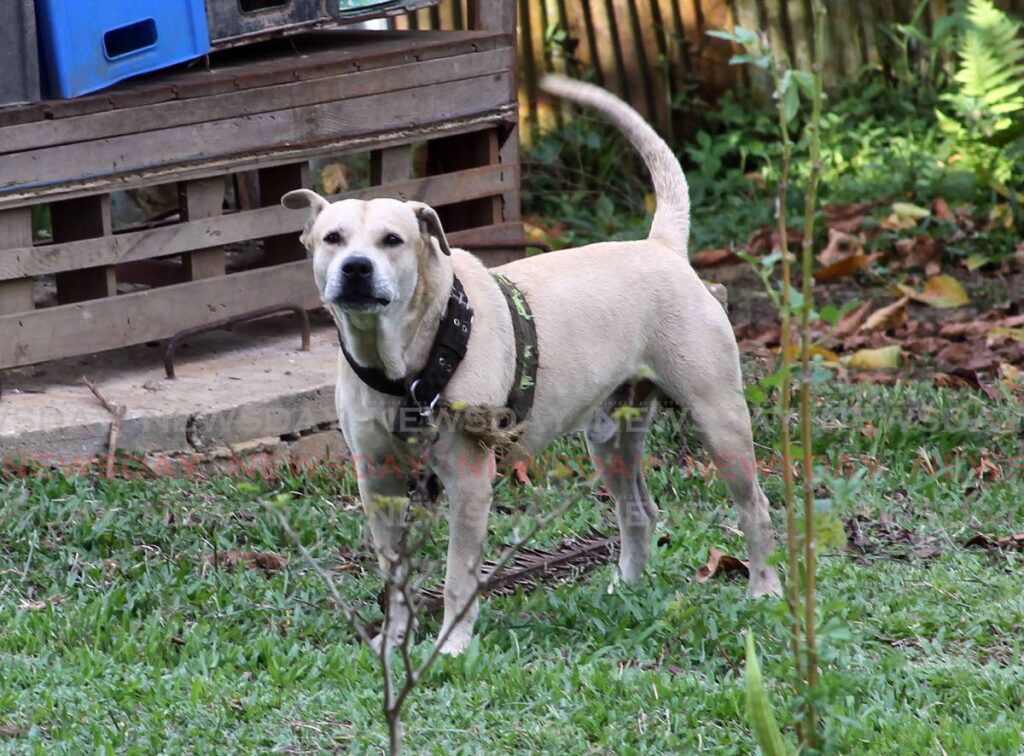TTSPCA: More work needed on dog control law

TT Society for the Prevention of Cruelty to Animals (TTSPCA) chairman Sita Kuruvilla on Friday said significant work needs to be done to ensure there is proper dog control legislation which benefits both dogs and people in TT.
She made this observation during a virtual meeting with members of the Parliament's Finance and Legal Affairs joint select committee (JSC) on the partially proclaimed Dog Control Act 2013.
One of the objectives of the act "is to provide for the control of dogs and to regulate the manner in which certain breeds of dogs are kept by their owners or keepers."
The act also covers the care of class A dogs, which are considered to be dangerous.
Four breeds are covered by the act.
They are the pitbull terrier, fila brasileiro, japanese tosa and dogo argentino and any dog bred from these four species.
Kuruvilla said the TTSPCA has kennels for class A dogs at its shelter in Port of Spain.
Due to people not understanding what the law required them to do and not wanting to care for these types of dogs which they had before the law, Kuruvilla said, "We had a large number of animals abandoned all over the country."
These animals were picked up by TTSPCA or other animal welfare groups.
She added, "We have no idea what this represented in terms of the full scale of abandonment (of dogs)."
Kuruvilla recalled the Agriculture Ministry arranged to house stray dogs at a facility in Chaguanas, some years ago.
This facility is no longer operational.
She said, "Subsequent to that, the Ministry of Local Government paid to build a class A (dog) section at the TTSPCA."
Local government corporations were allowed to use this service to house stray class A dogs free for one year.
But Kuruvilla said," Very few dogs came in from the corporations because they were not capturing the dogs or really dealing with them at all."
She added TTSPCA did receive stray class A dogs that were brought in by citizens or "rescued and picked up from abandonment."
Kuruvilla said the corporations now pay a $200 fee for each class A dog they bring to the TTSPCA.
This is the same fee for stray dogs brought in by the corporations which are not class A dogs.
She said, "We have a requirement to keep the (class A) dogs for at least seven days after which a decision is made as to what will be done with the dogs.
Training of personnel to handle dogs and specifically class A dogs is not a skill which is easily learnt by ordinary people.
Kuruvilla said it was unrealistic to expect corporation staff to be properly trained to handle stray dogs, which may or may not be class A dogs.
She suggested the creation of a dog control authority similar to what obtains in countries like the Bahamas as one possible solution.
Kuruvilla also said the TTSPCA also does not have the ability to curb backyard breeding of class A dogs.
JSC chairman Independent Senator Hazel Thompson-Ahye said this may have become a lucrative business for some people who breed class A dogs to sell to other people to protect their homes against criminals.
Animals 360 director Nikita Mohammed suggested the introduction of breed neutral dog legislation because aggression in dogs is a behaviour taught by their owners and is not specific to any breed.
Mohammed said there also needed to be a review of the penalties for people who engage in animal cruelty and illegally import animals. She added that the former are less punitive than the latter.


Comments
"TTSPCA: More work needed on dog control law"